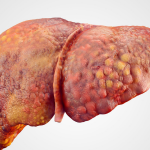Paleo Diet May Be Associated with Heart Disease Biomarker
Node Smith, ND
Dietary “fads” are nothing new. And with each generation, research on common and fashionable diets shows that health is more than diet alone, and that there are likely many factors that contribute to what diet might be best for any given individual.
More than twice the amount of a biomarker closely linked to heart disease found in the blood of individuals on the paleo diet
New research is beginning to question whether the paleo diet is the panacea of health that is often its proclamation. A recent study has shown that more than twice the amount of a biomarker that is closely linked to heart disease has been found in the blood of individuals on the paleo diet.
Research looking at the impact of the paleo diet on gut bacteria
The research, conducted by Edith Cowan University, is a major study looking at the impact of the paleo diet on gut bacteria.
The paleo diet has been popularized over the last few years, colloquially referred to as the “caveman” diet. It is commonly misunderstood to be a diet that is based around meat, fats and oils – similar to the ketogenic diet. The high vegetable content the diet was originally intended to have is commonly overlooked, and individuals on the paleo diet routinely are found to rely extensively on animal products, such as red meat. The diet does exclude grains, legumes, dairy, salt, refined sugar and processed oils.
Study looked at 44 individuals on a paleo diet and 47 individuals on a traditional Australian diet
The study looked at 44 individuals on a paleo diet and 47 individuals on a traditional Australian diet. The primary biomarker that was looked at was trimethylamine-n-oxide (TMAO) in the participants’ blood. TMAO is a compound that is produced in the gut and associated with an elevated risk of cardiovascular disease.
Research suggests the opposite in gut health for those on paleo diet
Lead researcher Dr Angela Genoni from ECU’s School of Medical and Health Sciences said:“Those who promote the paleo diet often cite it as beneficial for your gut health, but this research suggests there were adverse differences in those who followed the dietary pattern.”
Elevated TMAO levels in people on paleo diet due to higher intake of red meat and lack of whole grain consumption
The current understanding is that the elevated TMAO levels in people on the paleo diet are due to the higher intake of red meat, however, also due to a lack of whole grain consumption.
Whole grains a great source of prebiotic and fiber for gut bacteria
Whole grains are a great source of prebiotic and fiber for gut bacteria, and may contribute to healthy gut microbiome. It is likely that there is a variance in the degree in which these complex carbohydrates are beneficial, and that some individuals may respond differently to diets which eliminate or support them. Many dietary programs advocate this type of individuals specificity in diets, such as the blood type diet, elimination diet derived dietary plans, or other food intolerance assessments.
Dietary plans are not “one-size-fits all”
This research further supports that dietary plans are not a “one-size-fits all” endeavor, and that diets can also be significantly misunderstood and applied in a matter that doesn’t account for a person’s individual need, or overall macrobiotic content.
 Node Smith, ND, is a naturopathic physician in Portland, OR and associate editor for NDNR. He has been instrumental in maintaining a firm connection to the philosophy and heritage of naturopathic medicine among the next generation of docs. He helped found the first multi-generational experiential retreat, which brings elders, alumni, and students together for a weekend camp-out where naturopathic medicine and medical philosophy are experienced in nature. Four years ago he helped found the non-profit, Association for Naturopathic ReVitalization (ANR), for which he serves as the board chairman. ANR has a mission to inspire health practitioners to embody the naturopathic principles through experiential education. Node also has a firm belief that the next era of naturopathic medicine will see a resurgence of in-patient facilities which use fasting, earthing, hydrotherapy and homeopathy to bring people back from chronic diseases of modern living; he is involved in numerous conversations and projects to bring about this vision.
Node Smith, ND, is a naturopathic physician in Portland, OR and associate editor for NDNR. He has been instrumental in maintaining a firm connection to the philosophy and heritage of naturopathic medicine among the next generation of docs. He helped found the first multi-generational experiential retreat, which brings elders, alumni, and students together for a weekend camp-out where naturopathic medicine and medical philosophy are experienced in nature. Four years ago he helped found the non-profit, Association for Naturopathic ReVitalization (ANR), for which he serves as the board chairman. ANR has a mission to inspire health practitioners to embody the naturopathic principles through experiential education. Node also has a firm belief that the next era of naturopathic medicine will see a resurgence of in-patient facilities which use fasting, earthing, hydrotherapy and homeopathy to bring people back from chronic diseases of modern living; he is involved in numerous conversations and projects to bring about this vision.









